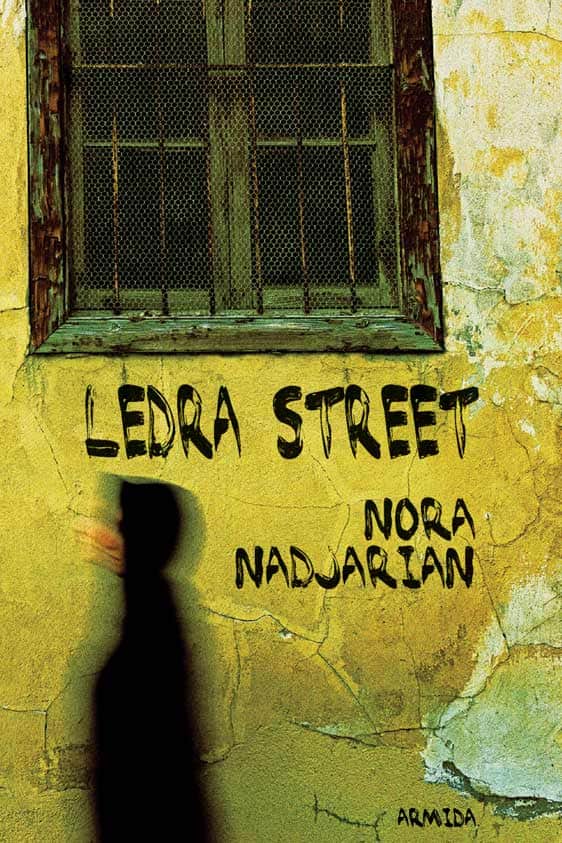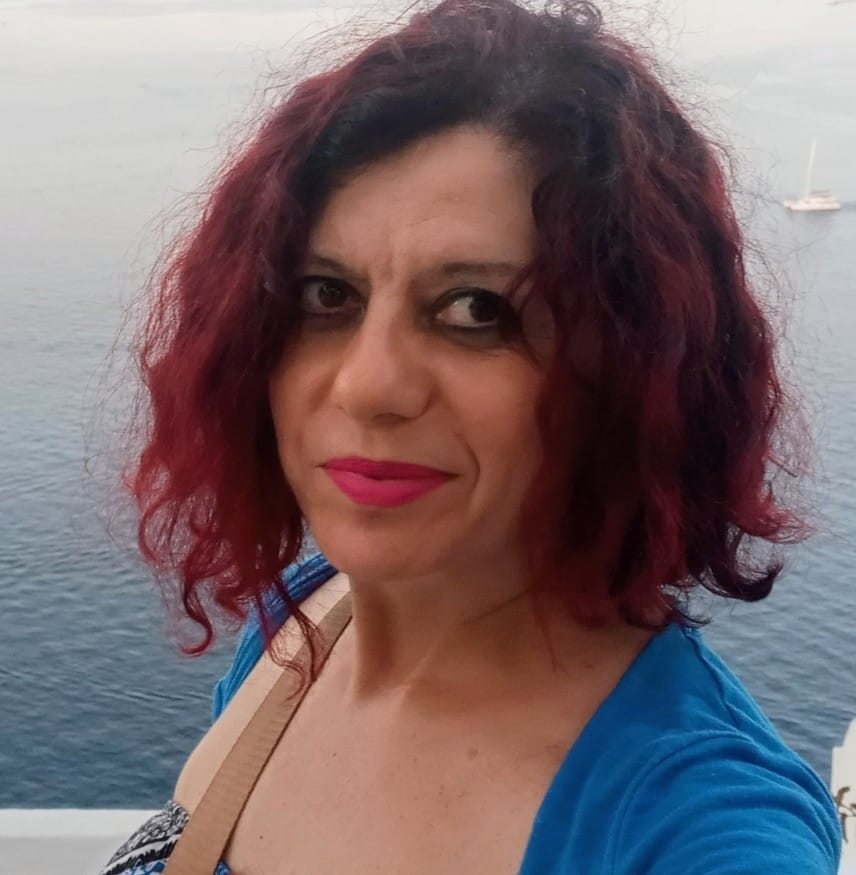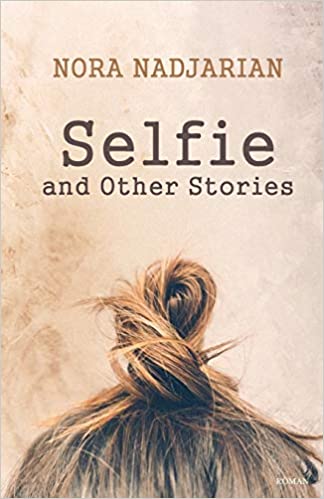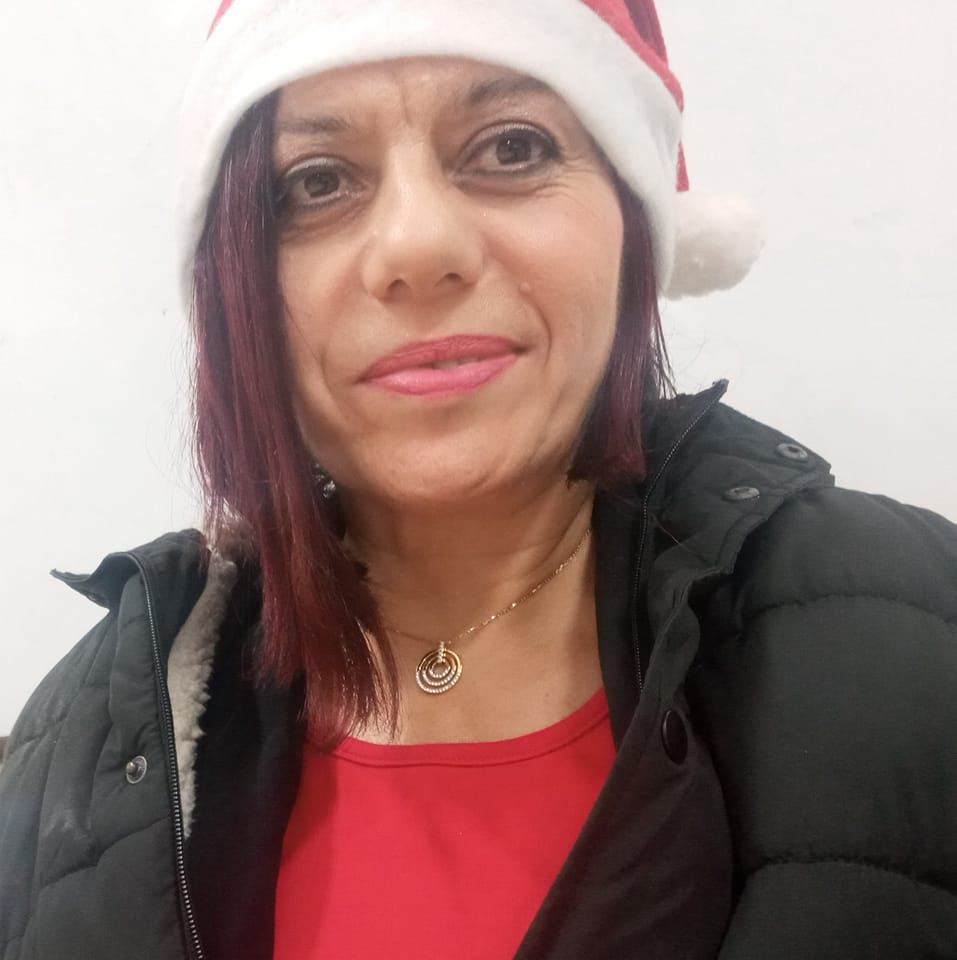
Part 2 MARK STATMAN: MEXICO AND THE POETRY OF GRIEF AND CELEBRATION
Part 2 of my interview with Mark Statman looks closely at Mark’s Latin American poetic influences, his life in Mexico and ends with an extract


I interviewed poet and short-story writer Nora Nadjarian, who writes about women, refugees, identity, exile, love and loss, as well as the political situation in Cyprus. Nora won the Anthropocene Valentine’s Day poetry competition, was a prize-winner in the Commonwealth Short Story Competition, and her story Doors was included in the Wigleaf Top 50 Short Fictions of the year. She is the author of two short-story volumes: Ledra Street and Selfie.
Jonathan Taylor says about her work: “Nora Nadjarian‘s remarkable stories demonstrate the infinite flexibility and potential of the short story form. They are at once poignant, witty, stylish, and beautifully observed miniatures of magic realism. They manage to be both experimental, pushing the boundaries of the form outwards, and instantly engaging. This is a wonderful collection of mingling, overlapping, conflicting and converging voices.”
Leslie: As a Cypriot who writes in English and Greek what impact has each of these cultures had on you? How do the expectations for audiences and writers differ between these cultures?
Nora: My mother tongue is Armenian, as I am of Armenian descent. Greek was the first ‘foreign’ language I was taught at primary school and I started learning English around that time, too. Most of my formal education (from the age of about 11) was in English, and when I started reading it was mostly English books. I was a bit of a bookworm and became fully immersed in the classics of English Literature, reading the Brontës, Jane Austen, George Eliot and many others. It was as if a new world had opened up for me and I started writing in that style: Gothic and other stories and sentimental poems which I would probably cringe at today. It was a few years after I’d completed my university studies in England that I started writing in earnest, discovering my own style of writing, as well as my voice. I would have to say that the British culture has had most impact on me, as I spent a number of years in Britain and also had British friends from whom I learned to read ‘between the lines’ and laugh at dry humour. The stories and poems I wrote in Greek tended to be published ‘on the side’, in journals in Cyprus – mainly because I was not writing that much in Greek at the time. I was, nevertheless, encouraged by a Cypriot short story writer to keep writing, as he could see potential in my work. It took me a long time to publish a full collection of short stories in Greek but I’m proud of The sea will be a little rough (‘Η Θάλασσα θα είναι λίγο ταραγμένη’) which was published in 2021.

Leslie: Tell us about the beginnings, growth and final execution of Ledra Street.
Nora: I started writing Ledra Street when I moved from Limassol to Nicosia in the early 00s. The title story had already been Highly Commended in the Commonwealth Short Story competition and I wanted to do more with it. So I started expanding it into a novella but it ended up as a book of (mostly) interlinked short stories. It was my first book of prose (I had been writing mostly poetry till then) but most people would say many of the stories are so lyrical they could be described as prose poems.
Leslie: What do you feel you achieved in this volume?
Nora: Ledra Street is highly evocative of ‘place’. The division of Cyprus following the war in 1974 is a recurring motif and most foreigners who have read the book are fascinated by it precisely because of this. It remains my most popular book to date and the title story is one of my personal favourites. The book captures the essence of everyday life on a divided island, and, sadly, the de facto political situation, which still exists, makes the book relevant to this day.

Leslie: How did Selfie build on Ledra Street? What was your writing/editing process? What did you discover about yourself while writing it?
Nora: I’m quite a slow writer and Selfie came about when I felt I’d written enough stories to make up another volume. Unlike Ledra Street the stories are not set in Cyprus and some of them are more experimental in style. There are different female characters in the book – older as well as younger – and they represent different facets in the life of a woman. Although they are independent stories, some readers have remarked that it’s almost as if they are different aspects of the same woman. I wouldn’t like to say that this woman is me because it really isn’t a book about me, but of course the title Selfie does betray the fact that there is something of myself in these stories. Various unexpected topics came to the surface while I was writing them – women may recognise traits of themselves in stories which deal with domestic violence, gaslighting, unwanted pregnancies, and so on.
Leslie: Tell us about how you approach collaborative work with other creative people. What have you learned from shared creative projects?
Nora: The whole pandemic experience, during which I connected with many creative people online, made me realise that working in a ‘cocoon’, creating in isolation is, perhaps, not the best way. I am now much more open to collaborative work than I was before the pandemic. One fabulous collaboration came about when a poet from Israel invited me to take part in weekly online meeting with a small group of international poets. We wrote many collaborative poems together, some in different languages – which we performed (online) in the Jerusalem Biennale (2021). It’s an experience I’d love to repeat.

Leslie: What have been your experiences as a teacher in prisons?
Nora: Teaching in prisons was another unforgettable experience which taught me just how much freedom there is in writing, in words. The inmates (some of whom were highly educated or came from political backgrounds) seemed at their calmest when recalling their memories and writing them down or recounting them in some form. Sharing their work with me was also very important for them, as was my opinion of their work.
Leslie: Can you describe the key incidents and personal experiences from childhood onward that have made you the writer you are today?
Nora: It’s very difficult to say what made me into a writer. And I couldn’t tell you exactly when my writing journey began. As far back as I can remember, I’ve always either read or written – but it was only when I started submitting work and getting acceptances that I realised that people actually wanted to read my work. That’s when I started taking my writing seriously, and, of course, a lot of my early work draws heavily from the division of Cyprus which I experienced as a child. Personal experiences which made me a writer also include my student days in the UK, eavesdropping and people-watching while travelling, and relationships.
Next week I interview Line Langebek, Emma Adams and Tarnia Mason about the Dissonant Futures Collective – a creative group of people who take climate grief as the central theme to their work.
ABOUT LESLIE TATE’S BOOKS:

Part 2 of my interview with Mark Statman looks closely at Mark’s Latin American poetic influences, his life in Mexico and ends with an extract

I interviewed international poet and translator Mark Statman about Volverse/Volver, his 14th published collection. Mark, who has won national arts awards, is Emeritus Professor of Literary

I interviewed Lisa Dart, finalist in the Grolier, Aesthetica and Troubadour Poetry Prizes and author of The Linguistics of Light (poems, Salt, 2008), Fathom (prose

I interviewed writer Julia Lee Barclay-Morton about her experience of autism. Julia began as an experimental dramatist in New York, moving to the UK to

I interviewed Gillean McDougall from Glasgow, who edited the collaborative projects Honest Error (on Charles Rennie Mackintosh and his wife Margaret Macdonald) and Writing the
| Cookie | Duration | Description |
|---|---|---|
| cookielawinfo-checkbox-analytics | 11 months | This cookie is set by GDPR Cookie Consent plugin. The cookie is used to store the user consent for the cookies in the category "Analytics". |
| cookielawinfo-checkbox-functional | 11 months | The cookie is set by GDPR cookie consent to record the user consent for the cookies in the category "Functional". |
| cookielawinfo-checkbox-necessary | 11 months | This cookie is set by GDPR Cookie Consent plugin. The cookies is used to store the user consent for the cookies in the category "Necessary". |
| cookielawinfo-checkbox-others | 11 months | This cookie is set by GDPR Cookie Consent plugin. The cookie is used to store the user consent for the cookies in the category "Other. |
| cookielawinfo-checkbox-performance | 11 months | This cookie is set by GDPR Cookie Consent plugin. The cookie is used to store the user consent for the cookies in the category "Performance". |
| viewed_cookie_policy | 11 months | The cookie is set by the GDPR Cookie Consent plugin and is used to store whether or not user has consented to the use of cookies. It does not store any personal data. |